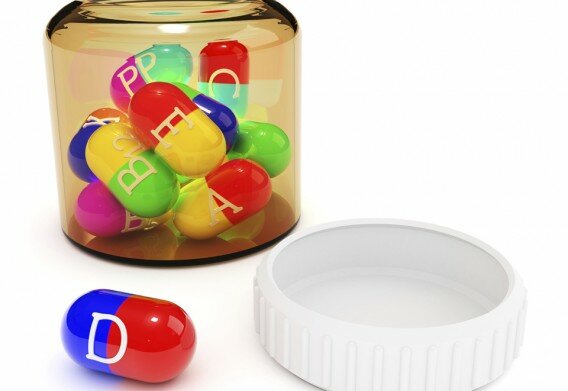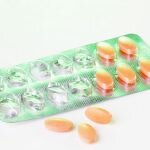Intermittent Claudication Offers Relief From Leg Pain
Pain-free walking. For most of us, it’s just a way of life… something we never really think about. But for some, it’s a distance measurement used to assess the progression of intermittent claudication.
This debilitating condition results from lack of blood flow to the legs and feet caused by narrowed blood vessels. Sometimes, people with intermittent claudication can walk only a few steps before the pain sets in – and sometimes, they simply can’t walk at all.
We’ve written about intermittent claudication (IC) several times. For example, in a previous e-Alert we told you how IC relates to another condition, peripheral artery disease (PAD).
Now we’ve found a new study that reveals another promising natural therapy for intermittent claudication (IC) and peripheral artery disease (PAD). The research shows this approach can significantly reduce pain and shrink the skin ulcers that often accompany this condition – all without any discernable side effects.
Disease and drugs deprive your heart of vital nutrients
It’s an amino acid called L-propionyl carnitine (LPC), which the body uses to turn fat into energy. Under normal conditions, the body can make all the L-propionyl carnitine (LPC) it needs. But some health problems, like diseases of the kidneys, liver, or brain, can reduce carnitine synthesis. Medications, like anti-seizure drugs, can also interfere with natural carnitine production. And research has shown the heart muscle is particularly vulnerable to carnitine deficiency, because of its high-energy requirements.
Carnitine comes in several forms, but L-propionyl carnitine (LPC) is the formulation most often associated with heart health. You may be familiar with the term; in CAM circles, carnitine has been discussed for some time as a potential treatment for angina, congestive heart failure, COPD, and even Alzheimer’s disease. Some previous trials had even shown it might help against intermittent claudication (IC) – but this is one of the first studies to show that L-propionyl carnitine (LPC) is significantly more effective than the drugs doctors usually prescribe for treatment.
The study, conducted in Italy, involved 188 patients with varying symptoms of intermittent claudication (IC) and peripheral artery disease (PAD). The participants were divided into three groups: Group A included 85 people who had experienced a decrease in pain-free walking distance in the last 15 days; Group B was composed of 59 people who had been experiencing pain even while at rest for two or more weeks; and Group C included 44 people with skin ulcers that had appeared in the last 15 days.
The whole group was randomly divided between two treatment categories: the first received 1.2 grams of L-propionyl carnitine (LPC) intravenously every day for two weeks, while the other received 1.2 grams of intravenous pentoxifylline each day for two weeks. Pentoxifylline (also known as the brand name Trental) is a drug commonly used to treat intermittent claudication (IC); it changes the shape of red blood cells so that they can fit more easily through narrowed blood vessels.
Carnitine delivers twice as much relief as prescription drug
After two weeks, both groups had seen some positive results. But the results in the L-propionyl carnitine (LPC) group were significantly better. For example, Group A patients in the drug group increased their pain-free walking distance by 30 percent. But Group A patients in the L-propionyl carnitine (LPC) group saw their pain-free walking distance increase 78 percent.
Changes in the mean pain scores were equally dramatic. The prescription drug lowered reported pain measures by 46 percent, but L-propionyl carnitine (LPC) slashed pain as much as 83 percent. And LPC also showed superior effects on patient’s skin lesions; the ulcers shrunk 25 percent on pentoxifylline, while L-propionyl carnitine (LPC) reduced the ulcer’s size by 48 percent.
Neither of the treatments caused any serious side effects in this study. But side effects of pentoxifylline can include loss of appetite, nausea, constipation, headaches, dizziness, anxiety, and blurred vision. L-propionyl carnitine (LPC) is generally safe, but it should not be taken by people with thyroid problems, as it may interfere with the hormone’s action.
In this study, both L-propionyl carnitine (LPC) and pentoxifylline were administered intravenously, in a 1.2 gram dose. But both therapies are also available in oral formulas – pentoxifylline with a doctor’s prescription, and L-propionyl carnitine (LPC) from supplement suppliers and health food stores. If you suffer from intermittent claudication (IC), talk to your doctor about your treatment options. Intravenous or oral supplementation with L-propionyl carnitine (LPC) just might lead you to a pain-free and more mobile life.
Did you find this information useful?
Then why not get more expert health recommendations just like this delivered direct to your inbox?
"It is truly refreshing to read a newsletter on the topic of alternative medicine which is scientifically based and reviewed by professionals..." - Robert Sinott
We respect your privacy and will never share your details with anyone else.Disclaimer: This article is part of the Daily Health's extensive research archive. The research and information contained in this article was accurate at the the time of publication but may have been updated since the date of publication. Consult our most recent articles for the latest research on alternative health and natural breakthroughs.
Bear in mind the material provided in this content is for information purposes only. We are not addressing anyone’s personal situation. Please consult with your own physician before acting on any recommendations contained herein.
- Comments (3)
- Facebook Comments (0)
Comments are closed.













I am very interested to know if the L-propionyl carnitine (LPC) will work to help my husband’s health problem as he is suffering for the pain in the legs for a long time this is called claudication or arterial disease. I am very thankful that i discover this site through search engine, really hope that my husband will get better and will see if we can find this Amino Acid in the herbal health shop or can we buy this in drug store? Thank you very much for your helpful site.
Yours Sincerely
Mrs R C Bryant
great aviso thank you! !
Thank you. This explains the severe pain I had in my legs. I started taking a product that contains L-Propionyl Carnitine and I wanted to know more about it when I found this article. Thank you again.